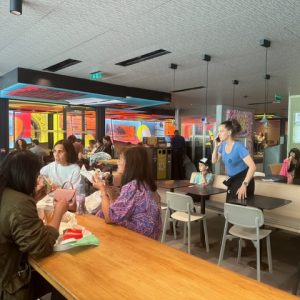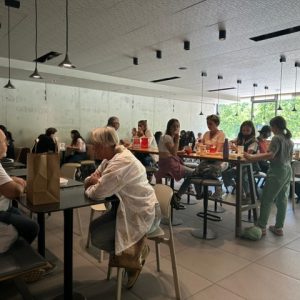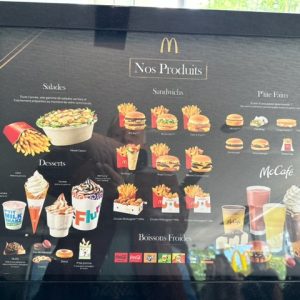McDonald’s in France
The French are very proud of their gastronomical heritage. They believe that French food is the most refined and sophisticated in the world. What’s more, the French look down on American cuisine, especially its fast food culture.
How is it that France leads Europe for the number of McDonald’s restaurants (McDo in French)? First, what are the facts?
There are reportedly 1,564 McDonald’s restaurants in France as of March 13, 2024. France is ahead of Germany in its number of McDonald’s restaurants, even though Germany’s population of 83 million is much higher than France’s of 66 million.
The highest number of French McDonald’s restaurants is in the Île-de-France (the area around Paris), with 304 restaurants. McDonald’s first location in France opened in 1972 by franchisee Raymond Dayan in Creteil, France.
McDonald’s France has 70,000 employees and sales in 2023 were over 6 billion euros. Some 80% of its restaurants are managed franchises.
Not surprisingly, the US is the country with the highest number of McDonald’s restaurants. Outside the US, Japan has the most McDonald’s, with close to 3,000 restaurants. China also has close to 2,400 McDonald’s restaurants within its borders as well.
With all that in mind, I recently interviewed one of the McDonald’s staff at its big restaurant on Paris’ Champs-Élysées. Here are some of the main points.
France is the world’s most visited country by tourists, with some 100 million tourists in 2023. So it is not surprising that about half of the customers at the Champs-Élysées McDonald’s restaurant should be tourists.
Tourists can enjoy good value food, with quick service, in a family friendly environment. They can also enjoy a known product, with no surprises. And above all, McDonald’s restaurants have relatively clean toilets, something which is lacking in France.
So what about French citizens visiting McDonald’s?
The French citizens frequenting the Champs-Élysées McDonald’s restaurant have very much the same motivations as international tourists.
Young people on a tight budget can have an affordable meal with friends. Young families can bring children and their friends, something which is more problematic in French restaurants.
And McDonald’s can serve a social purpose in France where poverty has been rising, and where already some 15 percent of the population is living in poverty.
What conclusions can we draw? All countries and cultures can be delusional. And in the case of France, many of its delusions pertain to its sense of cultural superiority vis-a-vis America and the Anglo-Saxon world more generally.
The French people’s enjoyment of McDonald’s food reveals that they are frightfully similar to the citizens of most other advanced countries – notwithstanding their own sense of cultural superiority and uniqueness.





